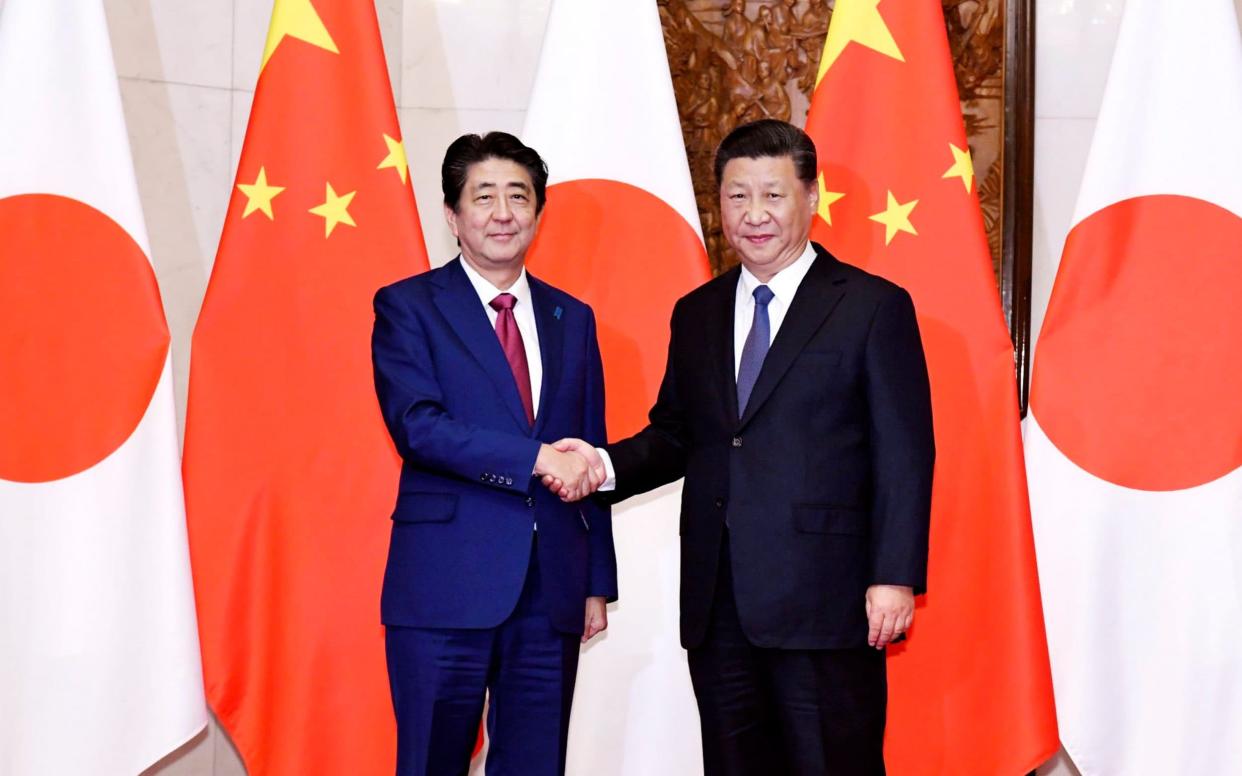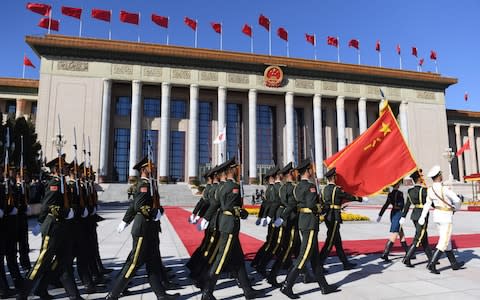Japan and China ties at 'historic turning point' though both sides remain wary

Japan’s relationship with China is at a “historic turning point” as the countries signed a series of agreements on Friday, although decades of historic tension still remain with Japan still critical of China's human rights record.
Shinzo Abe, the prime minister of Japan, is on his second day of a rare state visit to China, a trip he said marked the new dawn for relations between the countries.
“From competition to co-existence, Japan and China bilateral relations have entered a new phase,” Mr Abe said Friday.
He added that relations were at a "historic turning point".
Li Keqiang, premier of China's State Council, also praised the “bright future” of cooperation between the world’s second and third largest economies.
Mr Li also boasted of $18 billion (£14 billion) in business deals, but Japanese officials disputed the amount saying it was unclear how Beijing arrived at the figure.
Indeed Mr Abe’s visit shows the relationship is on the mend after territorial disputes and a disastrous falling out in 2012 over islands in the East China Sea.
Japanese officials reaffirmed Friday that it would not compromise or back down on issues including China’s human rights record.
Both sides have agreed to cooperate on denuclearising North Korea, to continue dialogue about the disputed region and maritime security, and signed a $30 billion currency (£23 billion) swap.

Mr Abe also met Friday with Xi Jinping, China’s president, and attended a state dinner in the evening.
But despite the public displays of affection, both nations are keeping their distance – Japan has invited Mr Xi on a state visit Japan next year though China has not yet accepted.
Chinese state media covered Mr Abe’s visit, but with little fanfare. Pollution was also heavy Thursday in Beijing when he touched down – Chinese authorities are known to stop factory production in order to ensure clear blue skies around important events.
Japanese officials as well made it clear signing a broad range of business deals with China was not an official endorsement or participation by Tokyo in Beijing’s highly touted “Belt and Road” development programme.
“Japan and China are both important donor countries, and there could be cooperation in the future,” Takeshi Osuge, Japan’s foreign ministry spokesman, told the Telegraph.
Japanese firms may choose to invest in various projects with Chinese companies without Tokyo’s knowledge.
“Without us knowing it, the Chinese government might be calling it part of the ‘Belt and Road initiative,” Mr Osuge said. “But for us, it’s a private company’s decision to join in that project, or invest.”
Mr Osuge added there were no specific projects being discussed for official cooperation.

